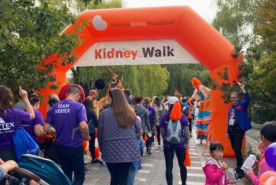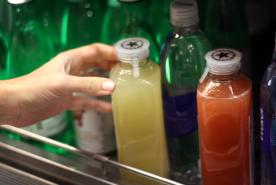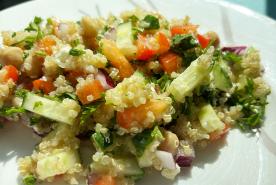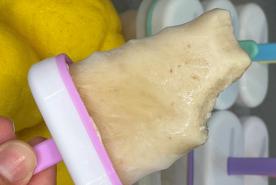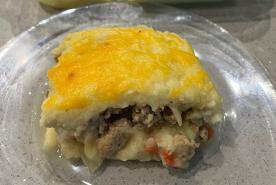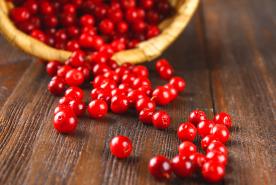May 18, 2023
Many myths and misconceptions surround the world of kidney health and nutrition. Navigating through all the online information can be confusing and overwhelming, but we are here to help!
Let’s explore the most common myths to provide you with the information you need to create a healthy, balanced diet plan that works.
Myth 1: There is only one kidney diet

Everyone is unique and that includes their dietary needs that depend on some of the following:
- Stage of kidney disease
- Lab results
- Medications
- Comorbidities like diabetes or high blood pressure
- Lifestyle activities like exercising
Working with your healthcare team and a kidney dietitian is the best way to create a diet plan that is right for you. Find a kidney dietitian near you.
Creating the right diet for you can be confusing, but you may be eligible for programs that can help.
- If you have Medicare and diabetes, you may qualify for diabetes self-management training.
- If you have Medicare and kidney disease with an eGFR between 15 and 59, you may be eligible for Medical nutrition therapy (MNT).
Both services help you create a diet to help slow the progression of the disease. Call your insurance provider to see if you qualify for either program.
Sign the petition to expand access to Medical Nutrition Therapy.
Myth 2: Whole grains, nuts, seeds, and beans have too much phosphorus

Phosphorus is a mineral that builds strong bones and keeps other parts of the body healthy. However, if your kidneys can’t remove excess phosphorus from the blood, it can pull calcium from your bones or lead to dangerous calcium deposits in blood vessels, lungs, and heart. Those deposits can increase the risk of heart attacks and strokes if you don’t control phosphorus through diet or prescribed medications.
Whole grains, nuts, seeds, and beans contain phosphorus, but that doesn’t mean you must cut them out of your diet. Your body only absorbs 50% of phosphorus from non-processed, plant-based foods! You absorb 80% to 100% of phosphorus from protein-rich foods like meat, fish, and dairy or processed foods with phosphorus additives.
For example:
- A half cup of whole grains contains around 200 mg of phosphorus, but your body will only absorb half of that, around 100 mg.
- A half cup of whole milk crumbled feta cheese contains 328 mg of phosphorus, of which you’ll absorb 262 to 328 mg.1
Phosphorus additives to keep an eye out for:
Sodium hexameta-phosphate | Dicalcium phosphate |
Trisodium phosphate | Disodium phosphate |
Sodium tripolyphosphate | Monosodium phosphate |
Tetrasodium pyrophosphate | Phosphoric acid |
Myth 3: People with kidney disease need a low-potassium diet

Potassium is an essential mineral found in most foods that you cannot live without because it helps your nerves, muscles, and heart work properly.
Contrary to the popular belief that everyone with kidney disease needs a low-potassium diet, people with kidney disease can be at risk of having too much or too little potassium.
- High potassium or hyperkalemia: Blood potassium levels are too high. You’ll need to eat less or low-potassium foods if you have high potassium. Your doctor may prescribe or adjust medications to help your body release extra potassium. Get a list of low-potassium fruits and vegetables.
- Low potassium or hypokalemia: Blood potassium levels are too low. You may need to eat more potassium or high-potassium foods if you have low potassium. Your doctor may prescribe or adjust medications to help you maintain potassium. Get a list of high-potassium foods.
Sudden or severe hyperkalemia and hypokalemia are life-threatening conditions requiring immediate medical care.
Myth 4: Kidney disease patients need to limit fruits and vegetables

Even those who need to limit potassium need plenty of fruits and vegetables. Why? Like phosphorus, less potassium is absorbed from plant foods than from meat-based or overly-processed foods. The fiber content may also improve regularity, increase overall potassium excretion, and improve acidosis, a condition where body fluids contain too much acid.
Having too much acid in the body can cause:
- Kidney disease to progress more quickly
- Increased bone loss or osteoporosis
- Muscle loss
Myth 5: Salt substitutes are safer than salt

Your body needs sodium to help nerves and muscles work correctly and help control fluid levels and blood pressure. However, too much sodium can negatively affect your health, especially if you have kidney disease.
It can cause:
- High blood pressure
- Discomfort during dialysis
- Fluid-build up around the heart and lungs
A natural reaction to this news would be to turn to a salt substitute, but many of these substitutes contain potassium chloride. This could be harmful, especially if you need to limit how much potassium you eat. Luckily, you don’t need to give up flavor when watching how much salt you eat.
Try these instead:
| Fresh garlic | Rosemary |
| Allspice | Black pepper |
| Fresh onion | Thyme |
| Basil | Lemon juice |
| Garlic powder | Sage |
| Curry powder | Vinegar |
| Onion powder | Ginger |
If you choose low-sodium or salt-free seasoning blends, look at the label and choose one without potassium chloride. Check with your dietitian to see if it is okay to use.
Myth 6: People with kidney disease cannot go on a plant-based diet
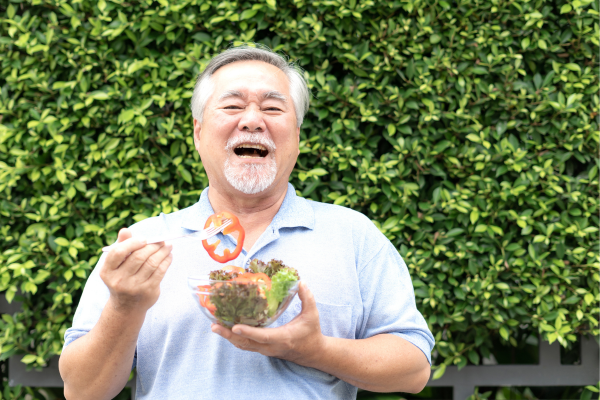
In the past, plant-based foods were avoided because kidney doctors believed they had too much potassium and phosphorus but not enough protein. Now, we know that well-balanced plant-based diets created by kidney dietitians may prevent and slow the progression of chronic kidney disease, type 2 diabetes, high blood pressure, and heart disease.2
"If you're doing a good nutrient-dense plant-based diet with kidney disease, you may feel a lot better,” said kidney dietitian Jessianna Saville RD, CSR LDN. “It's very doable, but if you feel nervous about it, work with your dietitian. They can help guide you.”
Learn more about plant-based diets.
Sources
1 “Cheese, Feta, Whole Milk, Crumbled.” FoodData Central, USDA, https://fdc.nal.usda.gov/fdc-app.html#/food-details/2259796/nutrients.
2 Cooper, Matthew, et al. “Report of National Kidney Foundation Consensus Conference to Decrease Kidney Discards.” Clinical Transplantation, vol. 33, no. 1, 2018, https://doi.org/10.1111/ctr.13419.






